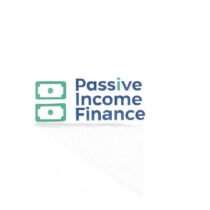Budgeting for Beginners: A Comprehensive Guide to Financial Success
Budgeting is an essential skill that everyone should master, especially if you’re just starting on your financial journey. Whether you want to save for a new car, pay off debt, or plan for retirement, creating a budget can help you achieve your goals. In this guide, we will walk you through the basics of budgeting, why it matters, and practical steps to create a budget that works for you.
Why It Matters
Understanding why budgeting is important can help motivate you to stick with it. Here are some key reasons:
- Financial Control: Budgeting gives you a clear picture of your income and expenses, allowing you to take charge of your finances.
- Goal Achievement: A budget helps you allocate funds toward your financial goals, whether it’s saving for a vacation or buying a home.
- Debt Management: A well-structured budget can help you pay off debts more efficiently.
- Emergency Preparedness: Budgeting allows you to set aside funds for unexpected expenses.
Step-by-Step Guide
1. Assess Your Income
The first step in budgeting is to determine your total income. Include all sources of income, such as:
- Salary
- Side hustles
- Investments
2. Track Your Expenses
Next, track your monthly expenses. This can be broken down into two categories:
- Fixed Expenses: Rent, mortgage, insurance, etc.
- Variable Expenses: Food, entertainment, shopping, etc.
3. Set Financial Goals
Determine what you want to achieve with your budget. This can include:
- Short-term goals (e.g., saving for a vacation)
- Medium-term goals (e.g., buying a car)
- Long-term goals (e.g., retirement savings)
4. Create Your Budget
Now that you have all the information, create a budget using a simple formula:
Income – Expenses = Savings
5. Monitor and Adjust
Regularly review your budget to ensure you’re on track. Adjust it as needed based on changes in income or expenses.
Tools
Utilizing budgeting tools can simplify the process. Here are some popular options:
- Mint: A free budgeting tool that helps track your expenses and financial goals.
- YNAB (You Need A Budget): A paid tool that emphasizes proactive budgeting.
- Google Sheets: A customizable option for those who prefer spreadsheets.
Case Study
Meet Sarah, a 28-year-old graphic designer who decided to take control of her finances. Sarah’s monthly income is $3,500. She tracked her expenses and found she was spending $2,200 monthly, which included:
- Rent: $1,200
- Utilities: $150
- Groceries: $300
- Entertainment: $400
- Miscellaneous: $150
Sarah set a goal to save $500 a month. By analyzing her budget, she realized she could cut down on entertainment expenses by $200 and grocery spending by $100. By sticking to her new budget, she successfully saved $500 each month, allowing her to finally take her dream vacation six months later!
Scaling Your Hustle
As you become more comfortable with budgeting, you may want to explore ways to increase your income. Here are some actionable steps to scale your hustle:
1. Hire Freelancers
If you have a side project or small business, consider outsourcing tasks to freelancers. Platforms like Fiverr allow you to hire talented individuals for as little as $5/hour. This frees up your time to focus on more important aspects of your business.
2. Automate Your Budgeting
Take advantage of free tools like Google Sheets or Mint to automate your budgeting process. By setting up formulas, you can track your income and expenses without manual input.
3. Explore Passive Income Strategies
Investing in stocks, real estate, or even starting an online store can be a great way to earn passive income. Look for opportunities that align with your interests and skills.
4. Upskill Yourself
Invest time in learning new skills that can help you earn more in your current job or land better-paying opportunities. Websites like Coursera offer courses in various fields.
5. Network
Building connections can lead to new opportunities. Attend industry events and connect with others in your field to explore collaborative projects or job openings.
Affiliate Link Suggestions
- Robinhood: A user-friendly platform for beginner investors looking to dive into the stock market.
- Fiverr: A marketplace for freelancers, ideal for finding affordable help for your projects.
Conclusion
Budgeting is a powerful tool that can help you gain financial control and achieve your goals. By following the steps outlined in this guide and utilizing available tools, you can create a budget that works for you. Remember, budgeting is a continuous process that requires monitoring and adjustments. Don’t hesitate to explore additional income opportunities to scale your hustle and reach your financial aspirations!
For more insights, check out our posts on Smart Investing Strategies for 2025 and Side Hustles That Pay.
Boost your earnings with Robinhood Free (start investing with no fees!) or Fiverr Free (earn extra with freelance gigs!).
